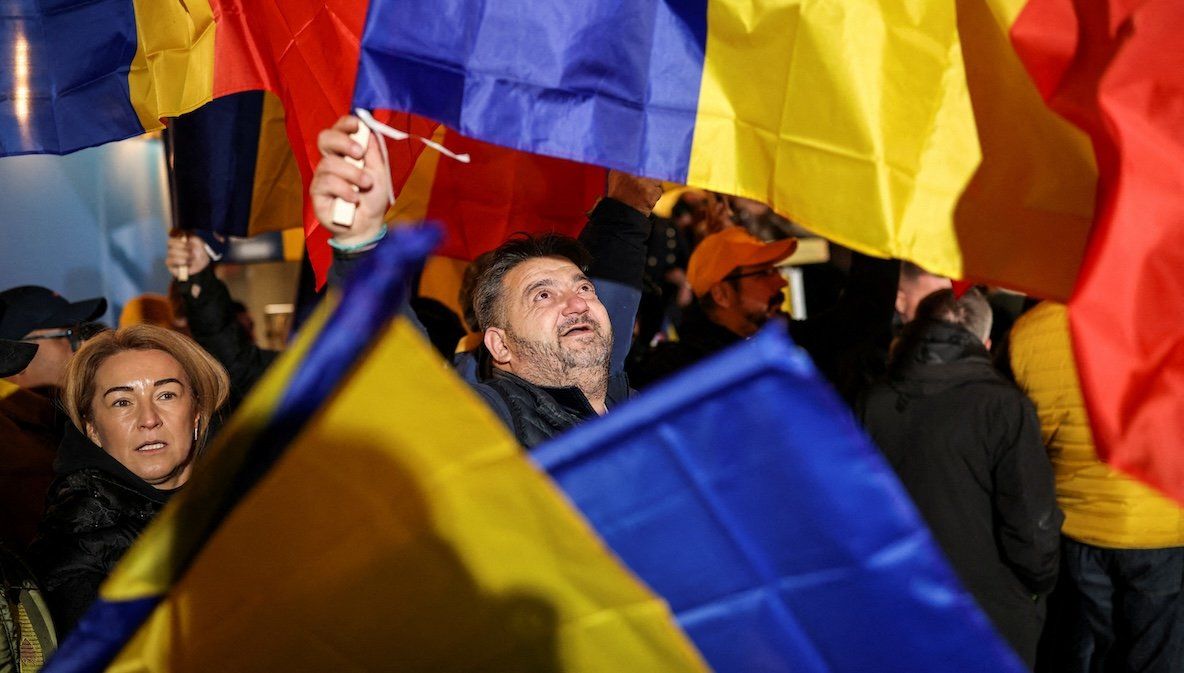Supporters of the radical right Alliance for Uniting Romanians wave Romanian flags following the first exit polls, at the party’s campaign headquarters, on the day of the parliamentary election, in Bucharest, Romania, on Dec. 1, 2024.
REUTERS/Alkis Konstantinidis
Romania’s leftist and centrist parties declared victory Monday following Sunday’s election as the ruling Social Democrat party, or PSD, secured 22.4% of the vote. The far right also saw increased support, with the Alliance for Uniting Romanians winning 18.2%, double its 2020 support. Pro-western parties are now expected to form a coalition, which PSDVice President Victor Negrescu pledged “will continue Romania's European course.”
However, the country still needs to hold a crucial presidential runoff on Dec. 8 – following first-round results from Nov. 24. Afterthe surprise first-place finish of populist candidate Calin Georgescu – an ally of Russian President Vladimir Putin – Romania’s Constitutional Court ordered a recount amid accusations of electoral interference by Moscow andTikTok, throwing the election in doubt.
On Monday, however, the court unanimously upheld the first-round result. Georgescu now faces center-right contender Elena Lasconi. If he wins, it could strain relations with Brussels and weaken support for Ukraine – which Georgescu has called “an invented state” – while a Lasconi win would reinforce Romania’s pro-EU position. While the prime minister is the head of government,the president has key decision-making powers in national security and foreign policy matters and nominates prime ministerial appointments, with the power to dissolve parliament if their choices are twice rejected.